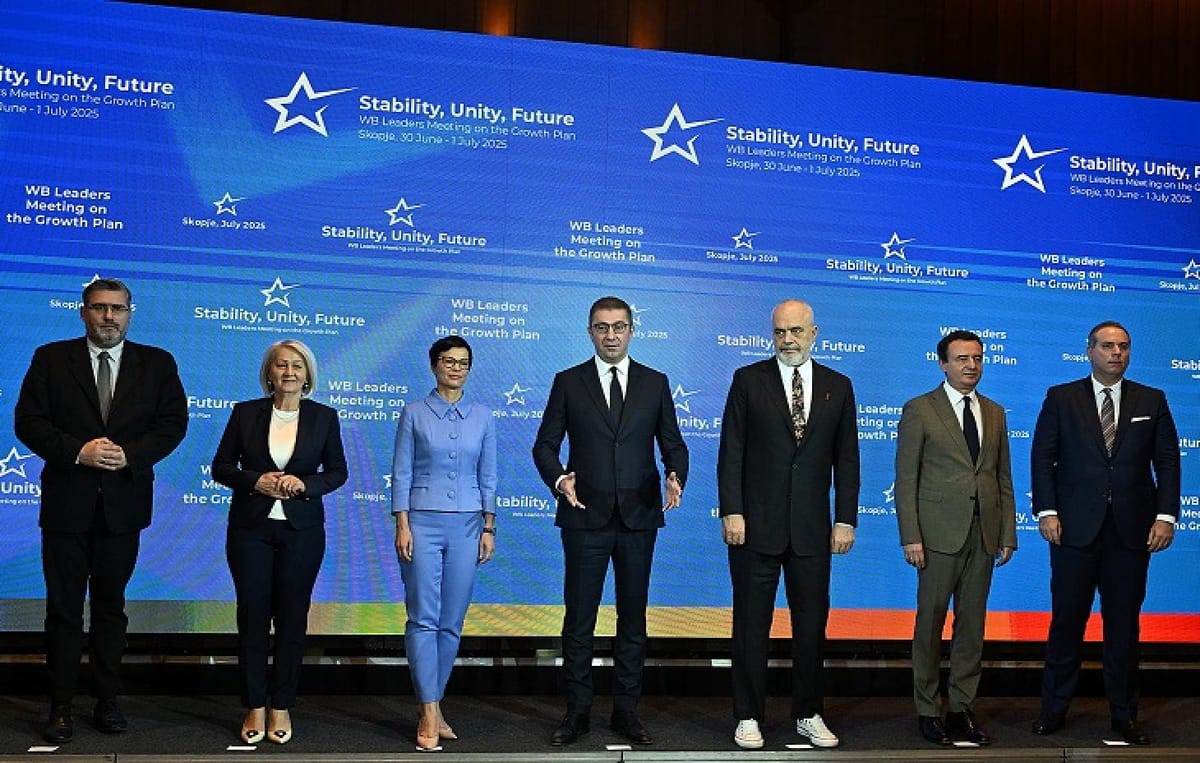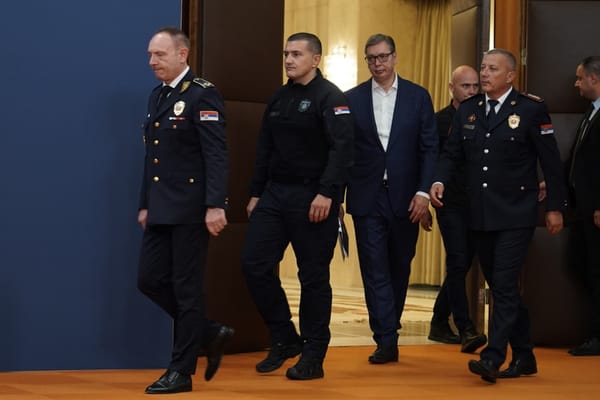
Albania, Montenegro could join EU by 2030 - EU commissioner
Albania is expected to have opened all the EU accession negotiation clusters by September, EU Enlargement Commissioner Marta Kos said on 1 July at a Western Balkans Six (WB6) leaders’ meeting in Skopje, North Macedonia.
“Both could join the EU before 2030,” Kos said, adding that Albania has “firmly committed” to reforms and should complete the opening of all clusters by the end of September 2025. Montenegro has already opened all chapters and is now focused on provisionally closing them.
The European Commission (EC) confirmed that both countries are on track under the EUR 6bn Western Balkans Growth Plan, with payments now tied directly to rule of law, energy, digital, and market alignment reforms. Albania has already received EUR 81mn in pre-accession support since January 2024.
The development comes as the EU seeks to restore momentum to its enlargement strategy, amid rising geopolitical stakes and growing support for integrating NATO-aligned candidate states.
Montenegro in closing stages
The renewed momentum in Albania and Montenegro’s accession processes reflects a wider strategic shift in EU policy following Russia’s invasion of Ukraine. According to the Atlantic Council, the two NATO-aligned candidate states are "seizing the moment" to align fully with EU standards, leveraging the bloc’s heightened urgency to stabilise its southeastern flank. Their progress is increasingly viewed as a test case for whether EU enlargement remains credible in the post-Ukraine security landscape.
Albania and Montenegro are “leveraging post-Ukraine enlargement urgency” to advance, according to the Atlantic Council. Both align 100% with the EU’s Common Foreign and Security Policy. Albania began negotiations in 2020, and Montenegro - already in the closing phase - launched its accession talks in 2012.
Kos said intergovernmental conferences would reconvene this autumn to formalise chapter-level progress. Senior officials from Romania, Slovenia and Czechia backed the push, but warned reforms must remain “credible and irreversible.”
EU budgetary support for the Western Balkans includes direct budget grants and investment guarantees. The Skopje summit confirmed that future payments will be strictly conditional, and aligned with the EU’s Single Market and decarbonisation targets.
Montenegro aims to complete chapter closures by 2027. Albania will focus on strengthening judicial independence, anti-corruption measures and market regulation to unlock additional funds under the Growth Plan.
Atlantic Council assesses Albanian, Montenegrin accession timeframes
Montenegro remains the most advanced candidate in the Western Balkans, having opened all 33 accession chapters. However, progress had stalled in recent years due to political instability and institutional drift. The Atlantic Council notes that the country’s new government, elected in 2023, has injected new momentum into long-overdue reforms - particularly in the judiciary, public administration, and anti-corruption enforcement - raising hopes that chapter closures could begin in earnest.
For its part, the Atlantic Council commented, Albania has demonstrated consistent political will for EU integration, backed by broad cross-party consensus. The Atlantic Council credits Tirana’s reform trajectory, particularly in digitalisation and market liberalisation, while cautioning that credible progress in judicial independence and media freedom remains essential. The country's uptake of pre-accession funds and compliance with rule-of-law benchmarks are seen as key tests of sustainable reform.
The Atlantic Council also praised the EU’s EUR 6bn Growth Plan as a model for results-driven enlargement, describing it as a shift from rhetorical alignment to measurable transformation.
Under this “more-for-more” framework, financial support and market access are directly tied to reforms in governance, transparency, and economic convergence. For Albania and Montenegro, this conditionality has become both a catalyst for domestic change and a credibility mechanism for the EU, the Atlantic Council added.
Reform, not rhetoric - Kos
“The EU can accommodate Albania and Montenegro, but only if they deliver reforms, not just rhetoric,” Kos said in Skopje on 1 July.
“The key reforms we are asking of you are not simple. They touch on entrenched structures of power and interests and require a deep societal transformation. You, the leaders, need to lead this change. The benefits are manifold, it will bring stability, security and prosperity to all your citizens," Kos said in her opening remarks of the summit.
"The Growth Plan is entirely in your hands, there is no interference from political dynamics," Kos said, adding that "this is a tool that will help you with important reforms and these reforms are necessary to prepare you for membership."
The WB6 comprises Albania, Bosnia and Herzegovina, Kosovo, North Macedonia, Montenegro and Serbia.

